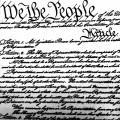Less than a month since the shooting death of 18-year-old Michael Brown, the Department of Justice made official the launch of a federal investigation of the Ferguson Police Department.
That’s the hard news.
Now read it again: A major civil-rights investigation. Launched in less than a month. In Ferguson.
Many predicted DOJ would launch the probe—Attorney General Eric Holder doesn’t just visit small midwestern cities for no reason. But in the larger scheme of eradicating abusive policing, the move is more symbolic than anything else.
It is symbolic because Ferguson is tiny. The small St. Louis suburb, population 21,000, is now in the same league as Detroit, Seattle, Portland, New Orleans, Newark, and the island of Puerto Rico as hotbeds of unconstitutional police practices. DOJ has investigated and issued scathing reports on all of them.
That DOJ would choose to use its power under the Violent Crime Control and Law Enforcement Act of 1994—which Congress passed in the wake of the attack on Rodney King by Los Angeles police—means Ferguson is now branded. But it’s mostly a formality.
The “pattern-and-practice” probe usually takes years. Compliance with its recommendations and consent agreements, if any, also takes a long time. There’s also the likelihood, given the modest size of the Ferguson force, that no pattern or practice of discrimination will be found. Ferguson is no Detroit.
But more importantly, the civil-rights law DOJ will be enforcing—it turns 20 this month—is not a criminal statute, but an enforcement provision; it rarely leads to an actual lawsuit in federal court, despite court involvement to oversee compliance.
In practice, that means no Ferguson officers will go to jail. And it means no money damages will be paid to victims of abusive policing. Brown’s family will have to pursue its own civil-rights lawsuit against the city, if it chooses to go that route.
What may come of the probe is more sensible and respectful policing—guidelines for best practices. DOJ reports are painstakingly thorough in their recommendations. The federal government may reach a consent decree with Ferguson, and that could go a long way. The city already announced that its officers will be wearing body cameras. All silver linings.
But is this what Ferguson and the other communities it represents are looking for?
That’s a broader question that goes beyond a federal probe. The DOJ move, if anything, only partly addresses the larger discontent that Ferguson residents experience—the criminalization of poverty, the lack of political representation, the “history of mistrust” between Ferguson and law enforcement that Holder underscored.
Viewed through a cynical lens, the DOJ probe may even be an implicit recognition that the government, for all its power and resources, is powerless to indict officer Darren Wilson. The legal hurdle to bring charges against Wilson is so high, announcing the investigation almost seems like the next best thing: It preempts the news that Wilson can’t and won’t be indicted for civil-rights violations.
Nobody knows where that separate investigation stands, but no charges for Wilson is news no one in Ferguson wants to hear; Los Angeles didn’t want to hear that the officers who brutalized Rodney King were acquitted.
It will take a true change in dynamics between police and the policed so that Ferguson never happens again. Twenty years of federal investigations have shown that true reform runs deeper than a long to-do list for unruly law enforcement.
